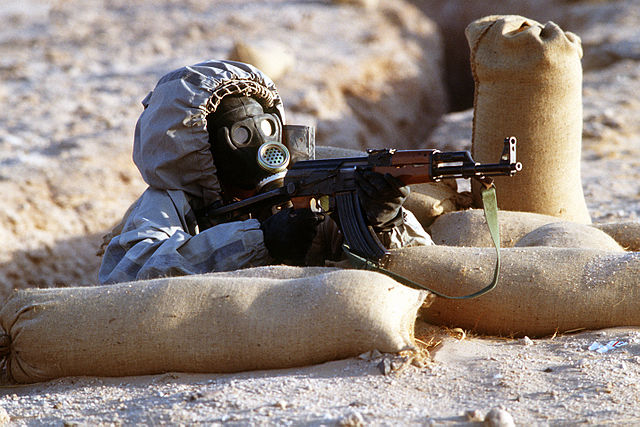Liberal democracy: just one option among many

The increase in authoritarianism and illiberal democracy is a concern for those who see an indissoluble bond between capitalism and democracy. And it’s a worry for those who believe that international liberalism is required to foster globalised capitalism. For others, the mere existence of authoritarian states or illiberal democracies highlights an unacceptable relativism that denies the universality of liberal values.
Many thinkers have questioned the connection between capitalism and liberal democracy, or whether the association is beneficial to either. But in West European, North American and Australian strategic policy it seems to be axiomatic that the spread of liberal democracy’s values is indispensable for trade and security.
In the jubilant wake of ‘The Unipolar Moment’, ‘The End of History’, ‘Democracy’s Third Wave’ and ‘From Geopolitics to Geo-Economics’ or, as George W.H. Bush had it, the ‘new world order’, the roll-back of liberal democracy seemed impossible.
For a moment in the 1990s, ‘it appeared that totalitarianism had at last been vanquished and liberal democracy had won the great ideological battle of the 20th century’. The number of representative democracies rose from 60 countries in 1989 to 100 in 2000.
Yet even where democratic elections take place there’s no guarantee of liberal values. Aggregating the number of elected governments isn’t the same as identifying the number of liberal democracies around the world. As Fareed Zakaria lucidly observed in 1997, many democracies are illiberal, repressive and violent.
It needs to be recalled that by 1938, eight of the 13 European parliamentary democracies established after the Treaty of Versailles had been replaced by dictatorships: Bulgaria, Estonia, Greece, Latvia, Lithuania, Poland, Romania and Yugoslavia. By 1938, fascists were in power in Italy, Germany and Austria, while Portugal and Spain were both under military dictatorship and Poland had an authoritarian constitution.
Following the Soviet capture of Eastern Europe, democracy was extinguished in the Baltics, Poland, Czech Republic, Slovakia and the Balkans until the early 1990s. Now, illiberal and ethnonational tendencies have begun to re-surface since the liberation of many post-Soviet states. Strongman or authoritarian regimes have emerged in Belarus and in the Central Asian states of Kazakhstan, Kyrgyzstan, Tajikistan, Turkmenistan and Uzbekistan.
The former democracies of Egypt and Turkey are now oppressive dictatorships in all but name. The Arab Spring’s democratic promise has dissipated. The political vicissitudes of sub-Saharan Africa don’t supply much optimism for liberal democracy. Similarly, in South America the once vigorous democracy of Venezuela has fallen to a dictator. Even in Europe, the political recidivism of a number of states, like Hungary and Poland, is creating great concern for the European project.
In 2017, for the ‘12th consecutive year’, according to Freedom House’s Freedom in the world 2018, ‘countries that suffered democratic setbacks outnumbered those that registered gains’.
Perhaps the real lesson from the long period of US military, cultural and economic hegemony is that liberal democracy cannot be imposed on peoples that draw their values from non-Western historical, social and religious traditions. The traditional political values of Western Europeans and North Americans have made few permanent inroads in Islamic states. Perhaps, when seen from the capitals of the developing world, the promotion of those values often appear patronising, hypocritical and self-serving.
If the global hold of liberal democracy is tenuous, it raises the question, how much does this matter? Are the security and prosperity of liberal democratic nations really irrevocably entwined with a liberal international order?
One of the major events of modern history took place before the end of the Cold War. Deng Xiaoping rose to be China’s paramount leader and set that autocratic country on the path to becoming a dominant economic and military power. As a consequence, today it’s a successful world power that’s in no sense liberal.
Deng’s reforms resulted in what Barry Buzan and George Lawson categorise as ‘state bureaucratic capitalism’. The post–Cold War world engendered not a liberal international order, in their view, but a move towards a ‘decentred globalism’. By that they suggest international competition in future will be between the ‘alternative modes of capitalist governance’: liberal democratic (the US, the UK, Australia and Canada), social democratic (Europe, India, Japan and South Korea), competitive authoritarian (Russia, Malaysia, Pakistan and Kenya) and state bureaucratic (China).
There is ‘much common ground between all types of capitalism’ because they all need ‘the global trade, production and financial circuits on which their prosperity and growth depend’. The emerging order, they argue, will be made up of a range of states, each exhibiting different political economies, as well as varied relationships between citizens, governments and markets, but still essentially capitalist.
The nexus between trading capitalist economies and liberal democracy will be broken. As trade will still be integral to the wealth and power of those states, they’ll still seek a rules-based international order in which to conduct international business. However, for many states—perhaps most—a clear separation between the rules for international commerce on the one hand, and trade and liberal values on the other, will be a given.
If authoritarianism and illiberal democracies cannot be eradicated the international order is unlikely to exhibit a liberal character. What that might mean for the norms of international behaviour and conflict may already be apparent in Ukraine and in the Middle East.
There still seems to be a deep reluctance to accept that liberalism is neither universal nor essential. However, the world wars, the post-colonial wars of independence, the Cold War and the ‘war on terror’ have all failed to embed liberal values. The best option for the liberal democracies may be to prepare for an illiberal international order.


